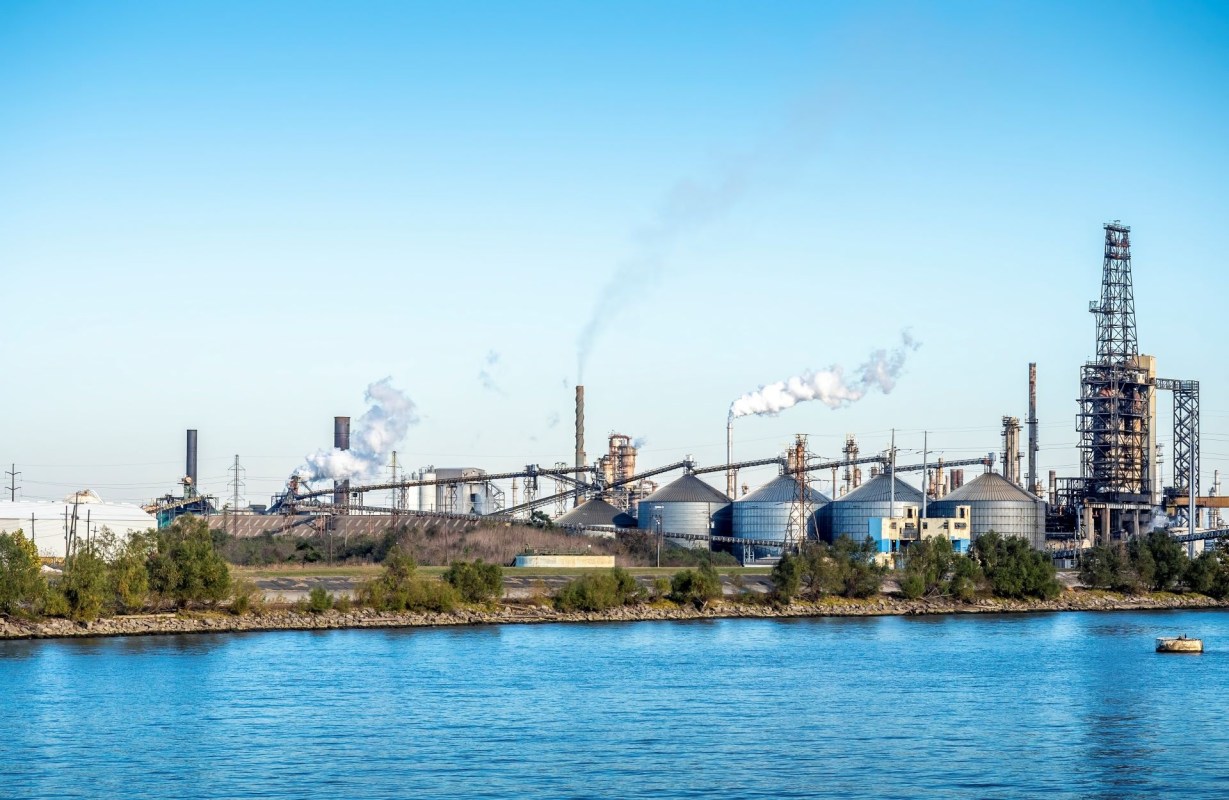Travis Dardar, an Indigenous fisherman from Louisiana, is a resident of Cameron Parish, and he says his home is becoming unlivable thanks to nearby gas export facilities, Nexus Media News reports.
Liquefied natural gas, or LNG, is a type of fuel that is a vapor at room temperature. Export terminals cool down the gas until it becomes a liquid. Then it's placed on barges and shipped out of the country.
The U.S. only started to export LNG in 2016, but is now the world's biggest provider of this fuel, according to the U.S. Energy Information Administration.
To achieve this, companies build facilities right on the coast — like Commonwealth LNG, which plans to move into the area. Commonwealth LNG intends to fill in a marsh to build its site — one that the National Marine Fisheries Service says is an essential habitat for young fish in the area.
"Just the one they built already is too much and too close," Dardar told Nexus Media News. "There will be no living here."
LNG terminals are also a threat to residents' health. The facilities release large amounts of air pollution, including methane, which recent studies link to heart and breathing problems.
"I don't see them putting one in by Martha's Vineyard," John Allaire, a local with 40 years of experience in the gas and oil industry as an environmental engineer, told Nexus. "It's absolutely a sacrifice zone."
Besides destroying the local fishing industry and causing health issues, the Environmental Integrity Project says LNG terminals could release as much as 90 million tons of heat-trapping gases each year, equivalent to that of 18 million cars.
A large portion of this comes from burning escaping gas. For example, Cameron Parish residents have witnessed frequent episodes of "flaring," when the LNG terminals set fire to gas that has leaked or been released to relieve pressure. It's supposed to be an emergency measure, but Nexus reports months of flaring and multiple leaks in 2022.
On top of these concerns, the LNG facilities are in a zone ravaged by hurricanes. Storm damage to the facilities could cause disastrous leaks or fires.
James Hiatt, a coordinator for the environmental organization Louisiana Bucket Brigade, told Nexus he's particularly concerned following the devastating hurricane seasons of 2020 and 2021.
"How can they build these things directly on the coast when the residents who are there can't even get home insurance?" he asked.
Join our free newsletter for cool news and actionable info that makes it easy to help yourself while helping the planet.









